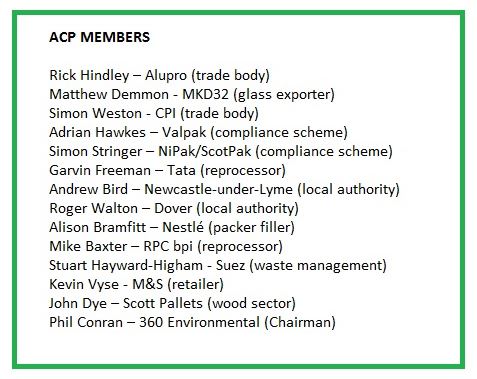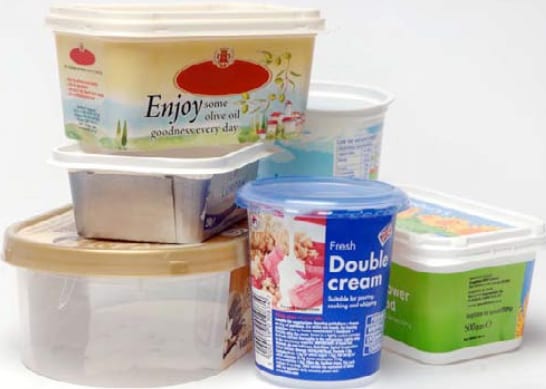The idea of some form of compliance fee for the PRN system looks to be unlikely in 2019 but is possible for 2020, according to a statement issued following a meeting of the Advisory Committee on Packaging.
The emergency ACP meeting last week was held because of strong sector concerns that the PRN price, for plastics in particular, looked to be spiralling out of control to an ever higher price, partly because there could be a shortage of the evidence at the end of the year.
However, the meeting of the ACP has now signalled that it expects a market correction and that prices will ease although there remains a problem in the aluminium sector. And, over the past week, prices of plastics PRNs, for example have fallen from as high as £420 down to below £300 a tonne.
Mechanism
A compliance fee mechanism, which already exists in the WEEE – waste electrical and electronic sector – could mean that if prices got so high for a type of PRN, a scheme or business needing them could instead adopt to pay a compliance fee as an alternative route after failing to obtain sufficient evidence of recycling. The assumption would be that the fee would be calculated at a more “reasonable level” than the high price of a PRN. But, it has proved controversial in the WEEE sector; it is partly seen as being a punishment and should be priced accordingly and there is discussion over how it operates and how much should be paid.
 Now, instead of a compliance fee, some other process may be introduced for PRNs in 2020 with the committee instead using the terminology of a “mechanism” to restrict excessive pricing.
Now, instead of a compliance fee, some other process may be introduced for PRNs in 2020 with the committee instead using the terminology of a “mechanism” to restrict excessive pricing.
Escalation
In a statement, the ACP said it met on 19 June to “consider the causes and impact of the recent rapid escalation in PRN prices and to consider possible options that could be recommended to Defra to avoid the consequences of an overheated PRN system”.
The committee said that there was agreement that whilst plastic PRN prices are unprecedented, this did not properly reflect the current recycling situation and that there was no reason for the “excessively spiralling prices beyond speculation and perception”.
And, it said that market reports for April-June indicated that there were strong levels of recycling for along with “greater scrutiny by businesses on waste packaging reprocessing opportunities”. This is understood to mean that more material might be chosen for recycling than might normally have been, perhaps it was hard to get the material or it might need some additional sorting. The ACP said as a result these reports and the additional opportunities, “it is expected that this will lead to a market correction that should ensure more stable and less extreme pricing going forward.”
Targets
The statement continued: “However, it was recognised that as recycling targets increase and markets tighten, it increases the potential for excessive volatility across all materials and that there is a clear need for regulatory change to prevent this going forward. The ACP is therefore recommending to Defra that for 2020 onwards, strong consideration should be given to a mechanism that should restrict excessive pricing whilst still enabling the markets to work as intended and which will also provide a compliance option should future years see target shortfalls. The development of such a system for 2019 was considered but it was recognised that the legislative process and timetable made this extremely difficult with the danger that the introduction of such a system part way through the year might undermine existing compliance programmes.”
The post PRN compliance fee ruled out before 2020 appeared first on letsrecycle.com.
Source: letsrecycle.com Plastic



